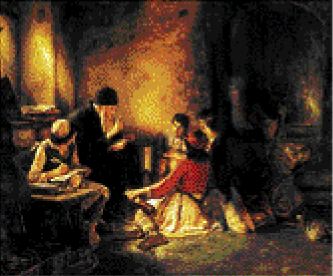Most recently, Yannakou asked the Academy of Athens, the country's highest intellectual institution, to issue an opinion on the book.
Professor Maria Repousi, a Thessaloniki University historian who led the four-member panel that wrote the book, told the Athens News that her opponents "criticise the book as being non-patriotic". "They say it tries to undermine the foundations of Greek identity," she stresses. At a recent news conference, she labelled her critics as "the nationalist bloc" and said she would accept no changes to the book demanded by them.
Though she insists the book has no factual errors, she admits misguided turns of phrase and says these types of changes will be made in the first revision.
That the 1922 burning of Smyrna by Kemal Ataturk's forces and the widespread killing and expulsion of the Greek and Armenian population are downplayed in the textbook has stirred an outcry in the public debate. "On 27 August 1922, the Turkish army enters Smyrna. Thousands of Greeks crowd at the port and try to leave for Greece" is the only reference.
"We said that this was an unfortunate wording that will be changed in the first correction of the book," Repousi says. She defends the book on the grounds that it "introduces a new method of history teaching and learning, which depends largely on using images as well".
"I feel pushed in a corner. It's not easy being at the centre of public attention, with name-calling," she says, noting the petition against the book on the website www.antibaro.gr.
The petition sums up the criticism of the book in five pages. It says that the Ottoman conquerors of Greece and their slaughter and oppression of Greek populations is prettified and cleansed in the name of political correctness.
It also maintains that the book muzzles "the significance of Orthodox Christian tradition in preserving the national conscience of the Greeks". It says legends and traditions of the "glorious Byzantine past influenced deeply the Greek revolutionaries", but are totally omitted.
"The heroism, self-sacrifice, martyrdom and national struggle that characterised the revolution were replaced by a dry list of numbers and events, stressing the socio-economic demands of various groups," the petition says. It also stressed that "the genocide of Christian populations is silenced and the historic dimension of the Asia Minor catastrophe is annulled".
Another criticism is that the Ottomans' act of seizing Greek boys from their families to serve in the Janissary corps is described as "recruitment", rather than kidnapping.
Archbishop Christodoulos charged that the book aims to "enslave the youth". "They challenge even March 25 [the date chosen as the symbolic start of the revolution, to coincide with the Annunciation of the Virgin Mary], the banner of the revolution raised by [Bishop] Paleon Patron Germanos, and the heroes Kolokotronis, Makrygiannis, and all those heroes who in their struggle said first 'for the faith' and then 'for the fatherland'," he said. "We sacrifice the historic truth on the altar of Greek-Turkish friendship."
The new book was commissioned by the education ministry in 2003 when Pasok was in power. Those who reject the book say it was changed to remove elements of passion and hatred of the Turks in the context of a Greek-Turkish rapprochement dating to 1999. Foreign Minister George Papandreou and Turkish counterpart Ismail Cem signed an accord to review each country's textbooks for nationalist bias.
Dimitris Nezeritis, a retired ambassador to Turkey who, with Turkish Professor Ilber Ortayli, is on a bilateral committee to review Greek and Turkish textbooks, told the Athens News that neither side has yet agreed to any change in its textbooks.
Repousi and the Pedagogical Institute, which advises the education ministry and is responsible for the writing of school books, deny that any political criterion influenced the writing of the sixth-grade history book.
Ioannnis Papagrigoriou, who supervised the sixth-grade textbook and also wrote the previous one in 1988, told the Athens News that the new book aims to teach critical thinking and use new technologies, but he said he had expressed reservations. He believes that history should instill patriotism, which critics say the new book does not. "Is it nationalist to love your country and traditions? The aim is to instill love of country and a national conscience, " he says.
Papagrigoriou stresses that the textbook was written based on an "analytical programme" prepared by the institute with detailed guidelines, which have the force of law. He says a DVD created as a teaching aid covers many things that the book does not, such as the destruction of Smyrna, but he admits that it has not been sent to a single school "due to bureaucracy". He has asked that it be sent now.
Papagrigoriou says teachers and students around the country have been sent a questionnaire on the book, and that changes will be made based on the results. The views of the Academy of Athens will also be taken into account. Questions include whether the narration is adequate and if national conscience is cultivated.
The academy's draft report, as leaked and published in the weekly newspaper Paron on March 18, was damning on over 70 points. The report said that the book fails to cultivate national conscience (which the Greek constitution says the state is obliged to do) and does not comply with the legally mandated analytic school programme.
"A school history book must be well edited, follow rules of historiography, attract students and earn their trust and that of their families, teachers and other possible readers. The book in question is faulty on all these counts," the draft said.
The academy said the book conceals Ottoman discrimination against non-Muslim populations, attacks against Greeks and forced conversions to Islam. It also says the role of legends, traditions and symbols contributing to Greek identity are ignored, as are Greek uprisings.



